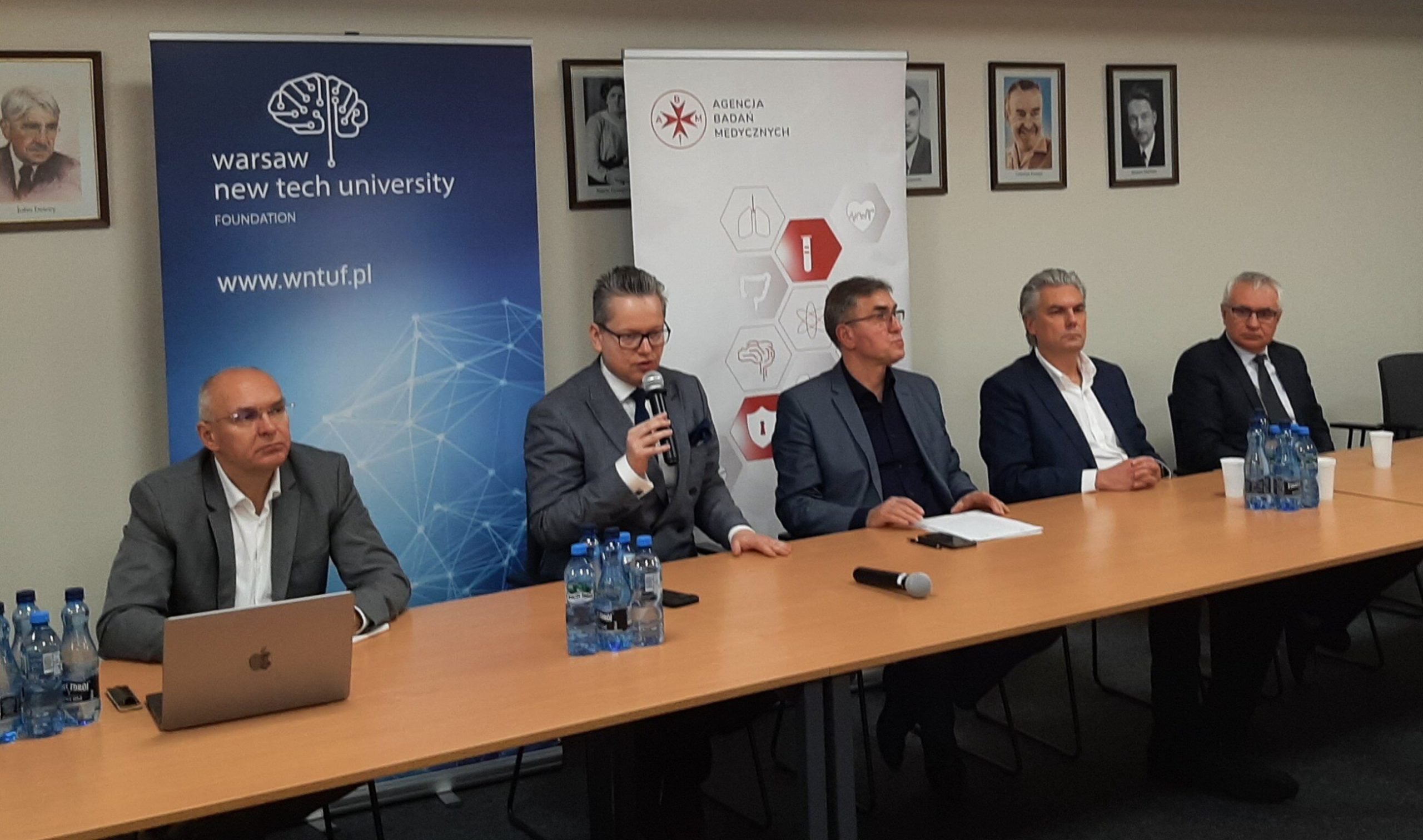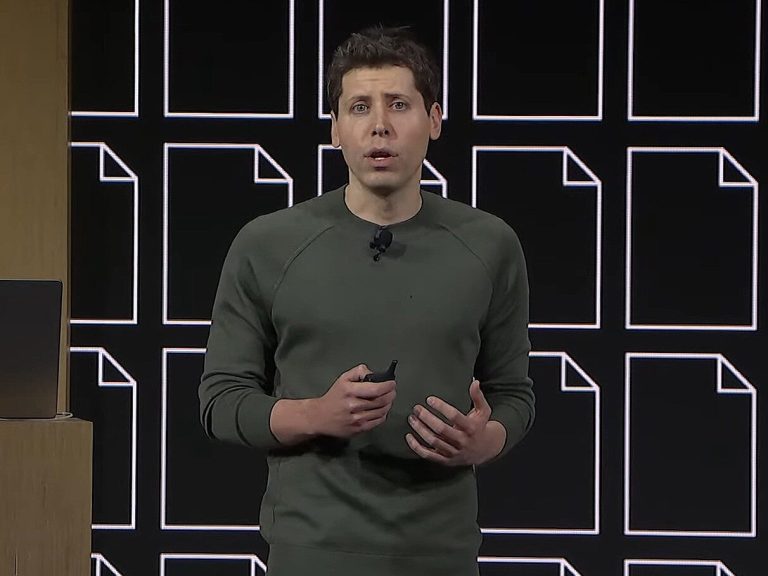The new face of the medical sector

On December 11 this year a conference was held entitled The new face of the medical sector in the context of technology development and artificial intelligence. The conference was organized by the Warsaw New Tech University Foundation in cooperation with the Cardinal Stefan Wyszyński University in Warsaw. The institutional partner of the conference was the Medical Research Agency.
The main goal of the conference was to present the situation of the medical sector in the face of the development of technology and AI as well as legal changes regulating the health sector. During the meeting, issues were raised regarding the use of technological tools and AI solutions from the point of view of benefits for patients, medical sector employees and research and development of science for prevention and public health. The debate also concerned difficulties and challenges for the development of the health sector and the role of new technologies and AI in the education of medical staff.
The conference was divided into three discussion panels, preceded by a presentation of ABM’s activities. Mr. Rafał Staszewski, M.D., Vice-President for Research Financing at ABM, presented ABM’s activities in a presentation Medical research market in Poland. Activities of the Medical Research Agency. The Medical Research Agency is the state agency responsible for the development of research in the field of medical and health sciences. The goal of the Medical Research Agency is to build an innovative health care system, including: by implementing grant programs financing non-commercial clinical trials. The tasks of ABM also include activities related to co-financing scientific research and development work in the health care system, supporting enterprises in conducting and developing innovative activities in the field of medical and health sciences as well as interdisciplinary projects, and initiating activities for the development of the clinical trials market. In his speech, Dr. Rafał Staszewski presented both the current activities of ABM in the field of medical research and the changes in the biomedical market, which were influenced by the development of technology and easier access to financial resources thanks to the implementation of ABM’s goals. President Staszewski also presented the conditions for obtaining funds for biomedical research.
First conference panel – Benefits of using modern technologies and AI in the medical sector, was devoted to analyzing the advantages of using technological solutions and artificial intelligence in the medical sector. The panelists pointed out the benefits of using technology for patients, representatives of the medical sector, and the role of technology and AI in the development of innovation, increasing the number of clinical trials, speed of information exchange, ease of access to research results and cheapness of cross-border data transfer. This translates directly into improving the quality of health services, establishing cooperation and exchanging knowledge and experiences of medical staff globally. At the same time, panel participants agreed that technology cannot limit patients’ access to doctors. Diagnostic services and consultations provided by a human must remain the standard, and in the process of diagnosis and treatment they should be supported by modern technology, which representatives of the medical sector must use responsibly, while respecting the dignity, privacy and intimacy of the patient.
The next panel, titled Challenges for the medical sector in the era of digital transformation, was devoted to issues of risks and threats related to the use of technologies in the medical sector (risk of discrimination, leakage of medical data…). The discussion revolved around issues related to legal regulations regarding the use of technologies in the medical sector, the difficulties of their implementation, challenges in implementing the patient’s right to privacy and personal data protection, as well as ensuring the security of medical data and cybersecurity of the organization. The panelists also addressed the issue of responsibility for the use of AI solutions, implementation of standardized procedures facilitating the use of technological tools, and building communication between medical staff and patients.
Third panel – New technologies and AI in the education of medical staff, was devoted to a discussion on the issues of interdisciplinarity in the education of doctors, the use of innovation in the education process, the role of cooperation between centers educating medical personnel, and challenges in creating new teaching programs that take into account changes in the socio-economic area. There was a very strong voice demanding greater humanization in medical education and building patients’ trust in technological and AI solutions used in the medical sector.
The conference was attended by outstanding representatives of the medical sector and experts dealing with the issues covered by the conference.
-
prof. Aleksander Poniewierski, EY;
-
Ph.D. Katarzyna Szczepańska – Woszczyna, prof. WSB University in Dąbrowa Górnicza, Vice-Rector for Science and Education, WSB University in Dąbrowa Górnicza;
-
prof. Ph.D. Stanisław Dziekoński, Cardinal Stefan Wyszyński University/ President of Warsaw New Tech University Foundation;
-
prof. Ph.D. n. med. Ryszard Gellert, Medical Center for Postgraduate Education;
-
Rafał Staszewski, MD, PhD, Deputy President for Research Financing at ABM, Medical Research Agency;
-
Dr. Ha. Jakub Pawlikowski, prof. Medical University of Lublin/Supreme Bioethics Committee
-
Col. Jacek Doniec, MD, PhD, Director of the Robotic Surgery Center – Military Institute of Medicine;
-
Ph.D. Joanna Pawlikowska, Faculty of Law, University of Białystok;
-
Krzysztof Kurek, MD, PhD, Lux Med;
-
Tomasz Kopacz, CE Healthcare Technology Strategist -Microsoft;
-
Grzegorz Stępniak, Warsaw New Tech University Foundation;
-
Dr. Łukasz Sosnowski, Partner at NIL IN | Digital Transformation in Healthcare;
-
Dr. Edyta Bielak Jomaa, University of Łódź/Warsaw New Tech University Foundation;
-
Jakub Betka, Conexus Law&Consulting, Data Protection Inspector of the medical industry.
Media representatives took part in the conference.
The discussion during the conference clearly showed that technology and artificial intelligence allow for increasingly better and more effective treatment and bring more and more promising results in the field of research and science. However, on the other hand, there are risks and threats of using artificial intelligence in the medical sector. The challenge for the future is to create an appropriate legal framework for the existence and functioning of artificial intelligence solutions in medicine, its proper implementation in the organization, and defining responsibility for the use of technology and AI.






